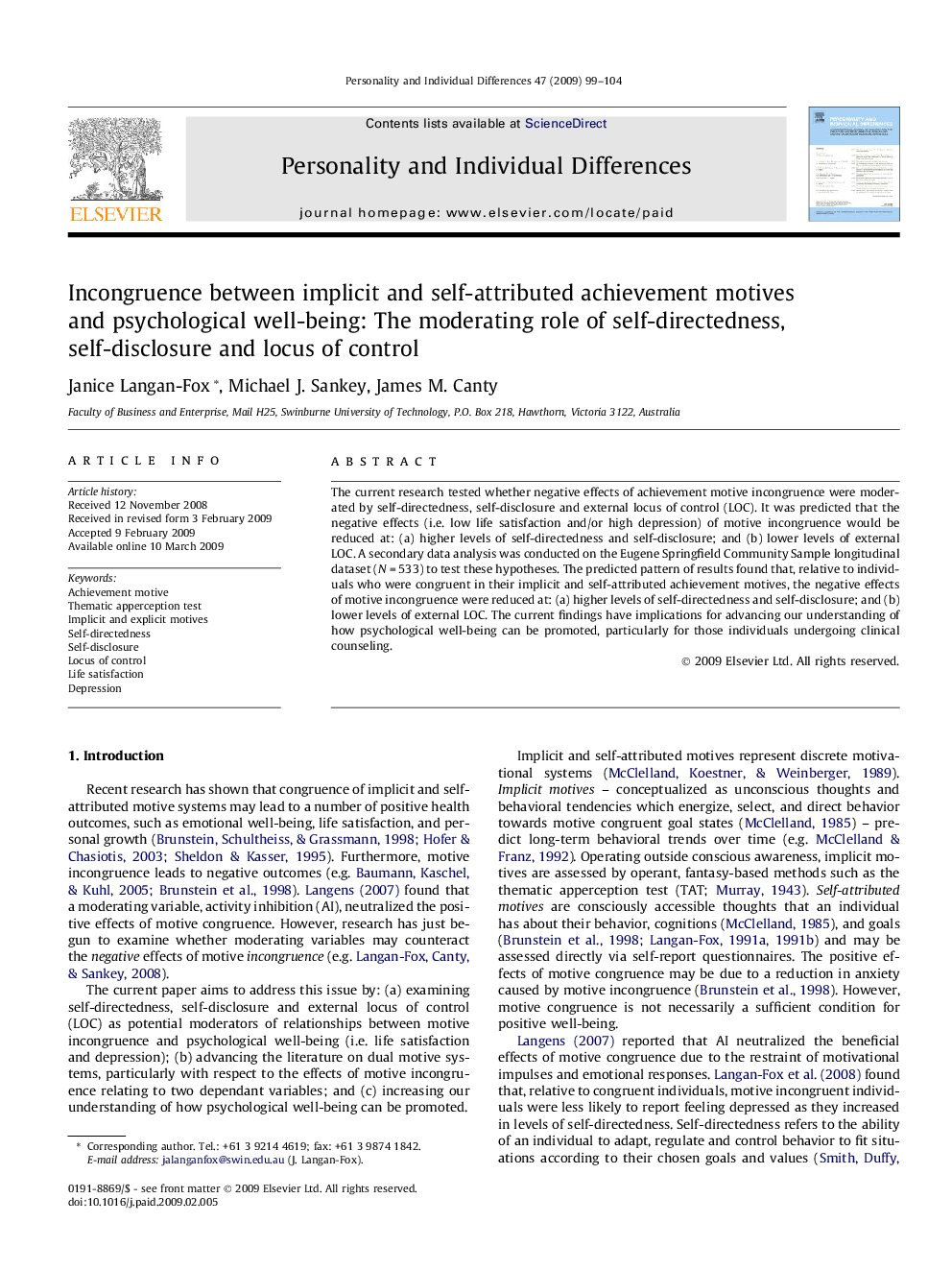| Article ID | Journal | Published Year | Pages | File Type |
|---|---|---|---|---|
| 892190 | Personality and Individual Differences | 2009 | 6 Pages |
The current research tested whether negative effects of achievement motive incongruence were moderated by self-directedness, self-disclosure and external locus of control (LOC). It was predicted that the negative effects (i.e. low life satisfaction and/or high depression) of motive incongruence would be reduced at: (a) higher levels of self-directedness and self-disclosure; and (b) lower levels of external LOC. A secondary data analysis was conducted on the Eugene Springfield Community Sample longitudinal dataset (N = 533) to test these hypotheses. The predicted pattern of results found that, relative to individuals who were congruent in their implicit and self-attributed achievement motives, the negative effects of motive incongruence were reduced at: (a) higher levels of self-directedness and self-disclosure; and (b) lower levels of external LOC. The current findings have implications for advancing our understanding of how psychological well-being can be promoted, particularly for those individuals undergoing clinical counseling.
